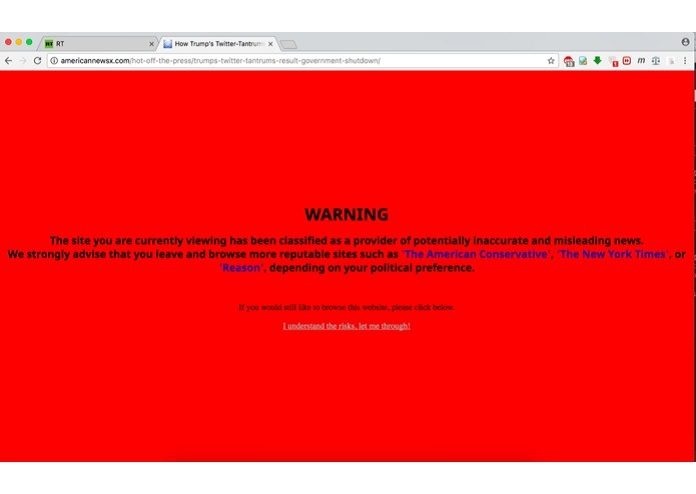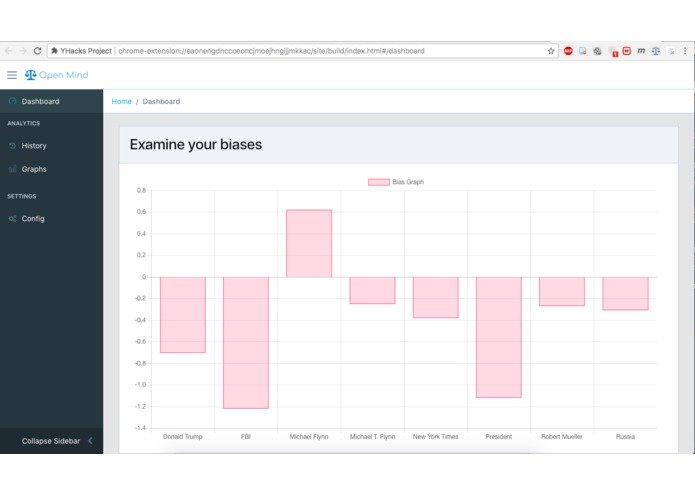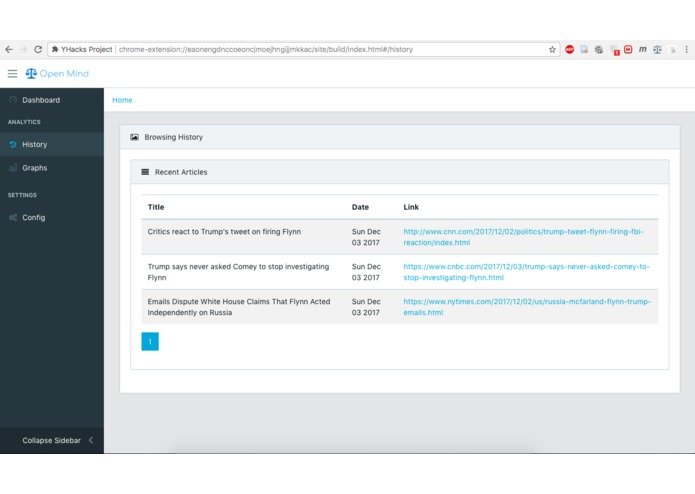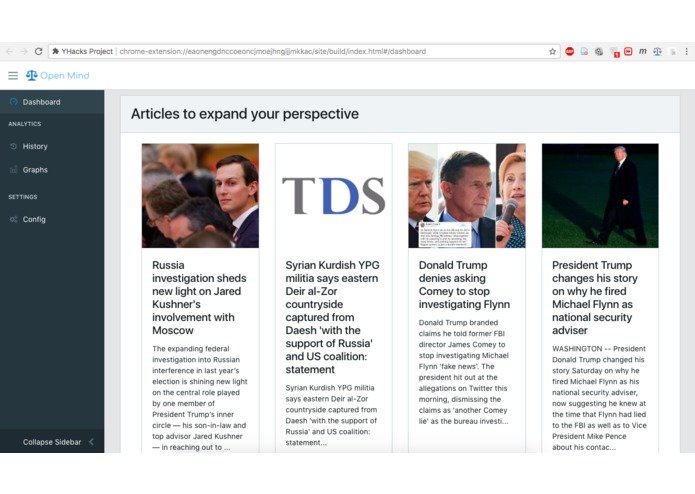Earlier this month, during a 36-hour problem-solving competition known as a Hackathon at Yale University, a team of college students developed a plugin, Open Mind, that alerts users to fake and biased news stories. It also helps guide them to more balanced coverage.
The team includes 4 students named Michael Lopez-Brau and Stefan Uddenberg, both doctoral students in Yale‘s psychology department; Alex Cui, an undergraduate who studies machine learning at the California Institute of Technology; and Jeff An, who studies computer science at the University of Waterloo and business at Wilfrid Laurier University in Ontario.
The group’s plugin, outlined as an augmentation for Google’s Chrome program, will show a notice screen when somebody enters a site known to disperse counterfeit news. It likewise will alarm a peruser if a story shared via web-based networking media is phony or one-sided.
However, it does considerably more than simply caution.
The module utilizes existing assessment investigation innovation to break down any story that may show up in a newsfeed, distinguishing the significant players and any political inclination. It at that point can recommend to the peruser different stories on a similar subject that have a substitute perspective.
The expansion additionally gathers perusing information and can demonstrate a client a chart that shows whether they have been perusing stories from only one side of a political range. It ministers a news encouragement for that client, indicating elective stories to the ones they have been perusing.
The thought, said Lopez-Brau, is to help get individuals out of the propensity for the partner via web-based networking media just with individuals who share their perspectives and perusing one-sided news scope skewed toward their convictions.
An said, “So let’s say there is an article that is very pro-Trump on a topic. We would then try to give you something more left of center. We can go out and find for you that alternative article.”
Cui said, “The solution is not to just tell people if something is fake or not. The solution is to develop a kind of a news auto-immune system.”



